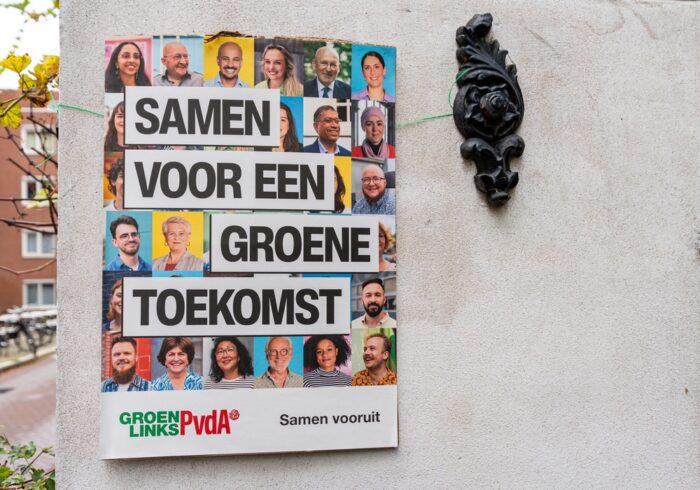The Progressive Post
Giorgia Meloni’s historical victory: three (or four) lessons for the Italian centre-left

The latest parliamentary election is a turning point for the Italian Republic. Giorgia Meloni reached a historical victory, paving the way for her post-fascist formation. There are no serious consequences for the future of democracy to be expected. Yet electoral results showed strong elements of fluidity within the party system that could provide new lessons for the largely defeated centre-left coalition.
On 25 September 2022, for the first time in the autumn season, Italians went to the polls in a climate of general concern and uncertainty. After the pandemic crisis, and the fall of Draghi’s government destined to temper the economic consequences of the pandemic, the consultation has been considered a ‘watershed moment’ for Italian democracy. The prediction of the possible electoral success of Giorgia Meloni, leader of a post-fascist party, on the way to winning a substantial share of the seats in the parliamentary chambers, seemed unprecedented for a country born from the ashes of the Mussolini regime. As in several other Western countries, like Sweden, the balance is moving towards the nationalist hard right. One may ask, as The Economist did on 24 September: ‘should Europe worry?’
A relevant part of Meloni’s political campaign, however, was reassuring, because she wanted to distance her party from the fascist heritage. Perhaps the common feeling that prevailed in Italy was that Italian democracy is strong enough not to afraid of any executive whatever his political colour: a position reaffirmed also by the former prime minister Mario Draghi who stated that Italy will succeed with any electoral result. The vote, rather than opening the way for a new political regime, provided strong evidence of electoral volatility, and fluidity of a still changing party system. Thus, although the recent election has been considered decisive for both domestic politics and international relationships, it also gives relevant political lessons, especially to the leftish coalition, on how to find itself.
First: electoral laws count. It seems a very intuitive rule, but it has had a dramatic impact on the autodafé of the centre-left coalition. The party Brothers of Italy came first in the proportional distribution of votes, with more than 25 per cent of the votes. But it was only thanks to the Italian mixed electoral law that the centre-right coalition obtained a strong grip over both chambers. The incapacity of the PD to form an alliance with the Five Star Movement after months of endless rhetoric on the need for a ‘wide alliance’ resulted in the lowest result in the history of the party, almost a chronicle of an announced defeat.
Second, Meloni’s victory seemed to constitute the third protest wave in Italy. In 2013, the Five Star Movement emerged as the big winner, gaining 25 per cent of the vote. It was its first national electoral test based on its populist message. After the 2018 election, Matteo Salvini’s far-right Lega surged to 40 per cent after a campaign experimenting with new digital technologies to communicate directly with citizens. In the recent consultation, Giorgia Meloni won after her party was the only one in opposition to Mario Draghi’s large coalition. Thus, the second lesson for the defeated centre-left is that the wind of discontent still blows very strong in the electorate, and it can change direction very rapidly in contemporary democracies. Centre-left parties should have the tradition, and probably vocation, to interpret the spirit of the times.
This also leads to the third lesson, on the increasing abstention in Italy. After a slow decrease in electoral turnout over the last decades, the recent polls reached the lowest point in Italian history, with only 64 per cent of citizens casting their vote (74 per cent in 2018). In some Southern regions, half of the electorate did not go to the polls. Whoever governs the country will have to deal with a large number of citizens who expressed a strong feeling of disaffection, an electorate Meloni was not able to mobilise. A large part of the Italian electorate did not vote for Brothers of Italy, they simply pulled the plug, because no one understood their needs and aspirations. Any political force that tries to recover should start from this part of the electorate.
Even after such a clear electoral triumph, the road for Meloni’s government still is an uphill one. The outcome for the three components of the right-wing coalition was very unbalanced, so Giorgia Meloni resulted as the only winner: in fact, Brothers of Italy won more votes than the two other right-wing parties in her coalition together. Although this coalition is destined to govern Italy, it presents Meloni with two unsatisfied partners who want more visibility. In addition to this, most commentators agree that a large part of Meloni’s votes came at the expense of the other right-wing parties.
Especially in a context of economic crisis and war, it is not easy, even for experienced politicians, to govern. But as former Prime Minister Giulio Andreotti used to say, from the height of his long Christian Democratic experience, in the end, power wears out those who do not have it. For the progressive electorate an element of consolation – and a lesson again! – could be the fact that, for the first time, this sentence can be pronounced by a female prime minister also in Italy.
Photo credits: Democratic Party




